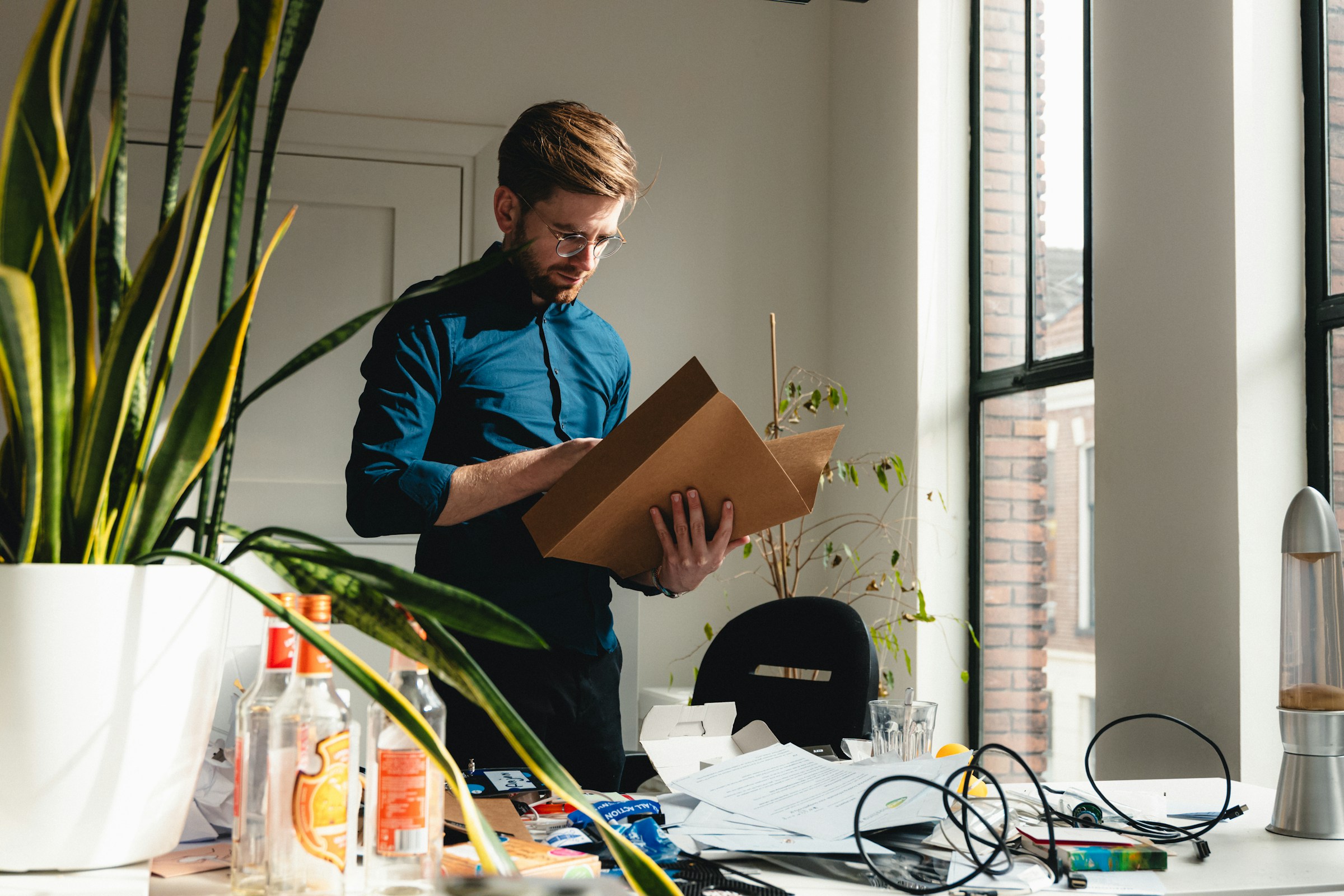The Mental Health Benefits of Decluttering and Tips on Maintaining an Organized Environment.

Life gets busy, and before we know it, our spaces can start to mirror the chaos. Maybe it’s that pile of papers on the kitchen counter or the clothes that never quite make it back into the closet. Clutter is easy to overlook, but it can have a surprising impact on how we feel day-to-day.
It turns out that our surroundings have a big influence on our mood and mental state. When things feel out of control around us, it can leave us feeling the same way—stressed, unfocused, even anxious. On the flip side, a clean and organized space can be a game-changer, bringing a sense of calm that helps us think clearly and focus on what matters most.
In this article, we’ll dig into why decluttering is so much more than just tidying up. You’ll discover how it can boost your mental health, see what research says about the link between our environment and our mindset, and get some down-to-earth tips to help you keep a peaceful, clutter-free space.
How Clutter Impacts Mental Well-being
 Image source: Pexels
Image source: Pexels
Clutter may seem like a minor inconvenience in our busy lives, but its effects on our mental well-being are anything but trivial. When our surroundings are disorganized, our minds often follow suit, mirroring the chaos and creating a persistent sense of unrest. A cluttered environment can make even simple tasks feel overwhelming, as the brain constantly struggles to sift through excess stimuli. This struggle isn’t just in our heads—studies back up this phenomenon, demonstrating that clutter can seriously impair our mental clarity.
In a study by Princeton University, researchers found that visible clutter forces the brain to work harder to focus, as it tries to ignore distractions caused by a disordered space. This ongoing distraction contributes to higher levels of stress and irritability, leaving us less able to think clearly or complete tasks effectively. When everything is scattered, our mental state becomes scattered too, leading to frustration and diminished productivity. Clutter essentially acts as “visual noise” that competes for our attention, making us more prone to feelings of anxiety and restlessness.
Similarly, researchers at the University of Connecticut discovered that controlling clutter can directly impact our mental health by reducing the stress associated with a chaotic environment. Their findings suggest that even small efforts to organize and manage clutter can foster a sense of calm and satisfaction, helping us feel more in control of our lives. Ultimately, maintaining an organized space isn’t just about cleaning up; it’s about creating a supportive environment where we can function optimally, free from the burden of constant mental distractions.
Mental Health Benefits of Decluttering
Sometimes clutter feels like it’s just “there,” but the truth is, it can have a huge impact on how we feel. Let’s break down some of the biggest mental health perks that come with clearing out your space
1. Less Stress, More Calm
Clutter has this way of adding stress, even if we don’t notice it right away. When there’s stuff everywhere—papers, clothes, things we keep “just in case”—it creates a kind of background noise in our minds. Each pile can feel like a little reminder of something we haven’t done yet, and that low-level stress can really add up.
But the magic happens when we start clearing things out, even just a little bit. Imagine finally sorting that stack of mail or cleaning off your desk—it’s like you’re giving yourself a small break. Instead of seeing a mountain of “to-dos,” you get to enjoy a space that feels lighter and less demanding. Just having that clear spot can make you feel more in control and at ease.
You don’t need to tackle everything at once to feel a difference. Try focusing on one area at a time, like your kitchen counter or bedside table. Each small change helps shift the energy around you, giving your mind a chance to relax. Over time, as you keep creating these little pockets of calm, you might find that your stress levels drop without you even trying.
2. A Boost in Mood and Confidence
Isn’t it amazing how good it feels to finally clear out a messy spot? Like, you know that drawer you’ve been avoiding or that pile of stuff on the counter? When you finally tackle it, there’s this little moment of pride. You look at the clean space and think, “Alright, I actually did something!” It’s a small thing, but it lifts your mood and makes the whole space feel better.
And weirdly enough, it kind of makes you feel more capable in general. Every time you clear out some clutter, you remind yourself that you can take control—even if it’s just a drawer or a closet shelf. That little boost sticks with you. It’s like, “Hey, I managed to sort that out, maybe I can handle a few other things, too.” It sounds simple, but these tiny wins can add up and give you a surprising amount of confidence.
3. Better Focus and More Productivity

It’s funny how just having stuff everywhere can make it so much harder to focus. Even if you’re trying to ignore it, the piles and random things lying around are kind of like mental clutter. Your brain keeps getting pulled to that stack of papers or the clothes draped over the chair, and before you know it, you’re totally distracted.
But when you take a few minutes to clear things up, it feels like your mind gets to relax a little, too. Suddenly, you’re not surrounded by stuff screaming for your attention, so it’s easier to actually focus on what you’re doing. A clean space can make a huge difference—you’re able to think more clearly and get stuff done without constantly feeling like there’s a hundred other things waiting for you.
4. Mental Clarity and a Sense of Peace
There’s just something so calming about a clutter-free space. When you finally take a few minutes to clear things out, it’s like your brain gets to relax, too. All that stuff lying around isn’t pulling at your attention anymore, and suddenly, it feels easier to think and breathe. It’s like your space finally matches the peaceful vibe you want to feel inside.
And it doesn’t have to be a massive cleanup either. Just clearing off a desk or tidying up your bedside table can make a surprising difference. Somehow, with less “stuff” around, your mind feels lighter, like there’s finally room to just be. A clean, open space can really help you feel more present and at ease—it’s such a simple thing, but it really can work wonders for your peace of mind.
5. A Simple Act of Self-Care
Decluttering isn’t just about cleaning up; it’s a way of taking care of yourself. When you clear out your space, you’re creating a place that feels comfortable and calm, somewhere you actually want to be. It’s like giving yourself a little gift—a space where you can relax without feeling overwhelmed by stuff everywhere.
What’s great is that this doesn’t have to be a big, all-at-once thing. Even spending a few minutes each day tidying up makes a difference. Little by little, you’re making your home feel more like a place to unwind. Over time, decluttering starts to feel less like a chore and more like a simple habit that helps you feel good. It’s a small way to show yourself some care and create a space that really supports your peace of mind.
Staying Motivated to Maintain an Organized Environment
Once you’ve decluttered, keeping up the momentum can be challenging, but adopting the right mindset can make all the difference. Approach decluttering with a positive attitude and set realistic expectations for yourself. Remember, there is no single “correct” way to organize; everyone’s needs are different, and it’s more important to make progress than to achieve perfection. Instead of striving for a flawless space, focus on creating a functional environment that works for you.
Practicing mindfulness while decluttering can also be a powerful motivator. Take a few deep breaths and set an intention before starting each session, reminding yourself of the benefits you’re working toward—a clearer mind, reduced stress, and a more peaceful space. Acknowledge each small success as you go, appreciating the difference it’s making in your life. By staying present and positive, you’ll cultivate a sense of satisfaction and accomplishment with each step, making it easier to keep up with your efforts over time.
Finally, personalize your organization strategies to suit your lifestyle. Find storage solutions that match your daily routines, and organize spaces in a way that feels intuitive. By aligning your organizational methods with how you naturally use your space, maintaining an organized environment becomes less of a chore and more of a supportive practice. Consistently practicing these techniques can help you sustain a clutter-free space that enhances your well-being and allows you to focus on what truly matters.
Clear Space, Clear Mind

Decluttering is more than just tidying up—it’s an empowering practice that allows you to take control of your surroundings and, in turn, your mental state. Each small effort to organize not only lifts the physical weight of clutter but also releases the mental burdens that often come with it. By creating a clean, organized environment, you’re giving yourself the gift of clarity, making it easier to focus on what truly matters in your life.
When we consistently prioritize decluttering, we’re not just crafting an aesthetic space; we’re nurturing an atmosphere that supports our emotional well-being and productivity. A clutter-free environment helps us relax, reduces stress, and even sparks creativity, all of which contribute to a more fulfilling life. Each intentional step to maintain this space can become a daily act of self-care, reinforcing positive habits that support long-term mental health.
Remember, there’s no need to strive for perfection—focus instead on what works best for you. As you embrace decluttering as a regular practice, you’ll find yourself feeling lighter, happier, and more empowered. Let your space reflect the life you want to live, and enjoy the freedom and peace that a clear, intentional environment can bring.
Featured image source: Unsplash
Loading...






